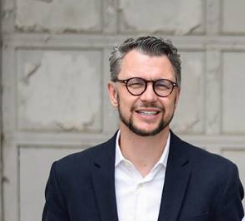Places, like people, can die.
Cities die because of purposelessness, but they grow through love and hope. The practice of resurrecting life in a city starts in the heart of God’s people, having a hope for its future.
I have experienced the call to a place—a “there that is woven into every fiber of my being.” My heart is bound to Opelika, Alabama, a small town that grew up as a result of the railroad. In the 1850’s this town was the only direct rail route between New Orleans and the Eastern Seaboard, rapidly becoming one of the primary trade lines for raw cotton from Southern plantations to the north. Opelika had a reputation as a wild, lawless town packed with saloons and frequent gunfire in the streets. This led to railroads ordering passengers to duck beneath the windows while passing through to avoid being shot. As with many small towns in American this once vibrant downtown fell into ruins in the late 1990’s, around the time I moved to Opelika.
I feel responsible for the stewardship of my home, my town. I practice resurrection through the deep, redemptive capability of business and historic restoration that promotes truth, beauty and goodness. This journey often looks like a detour. It often leads me in a direction that appears to be opposite of where I am trying to go. However, I am pressed by a vision, one that sees beauty in the restorative work of places as well as people. Opelika is where this vision finds purchase. I see possibilities, images of resurrection, and my heart longs to bring them to pass.
These images are always with me; they are in the shower and when I lie down to go to sleep. I see a city where God is celebrated in commerce and community. I see myself living at the epicenter of something amazing, feeling how God wants to shake the world from this little plot of ground.
Implementing these images is messy work, but it brings a proximate hope to my city and me. I have the privilege of seeing life through the expression of architecture in my community. Architecture inspires us through trim details, scale and proportion. God is a maker of beautiful inspirational things and went to great lengths to ensure the temple and its furnishings inspired people. The redemptive power of Christ is displayed through resurrecting historic structures. I build so that others can experience the power of the resurrection when they come to Opelika.
Resurrection begins with beauty emerging amidst brokenness. When I can view my communities through the lens of resurrection power, it becomes a place of beauty and utility. Amidst this, I remember that God is the ultimate definition of beauty. Seeing beauty in brokenness is a way of life, a mindset grounded in God.
Henri Nouwen saw that for beauty to be present in our communities, it must first be present within us:
“How can I search for beauty and truth unless that beauty and truth are already known to me in the depth of my heart?”
I restore because the master restorer has restored me. I choose the work of restoration as a very personal and passionate physical representation of the glory of God. The work of restoring historic buildings and developing businesses within them is fulfilling. Properties and places, like people, are restored by love and dignifying work—work grounded in joy, hope, and forgiveness.
I remember the first time I awoke to the fact that problems are opportunities in disguise. With this mindset, I can see potential and call it forth, empowering me to cultivate conversations of purpose for my city, neighborhood, and even myself. Opelika is meant to be a blessed collaboration of the hopes and dreams of its creators and the future possibilities of its inhabitants. True beauty calls us forth into Gods plans.
Each day I revisit my hope in the power of God to restore people and places. Restoring cities is an act of worship—men and women working shoulder-to-shoulder experience the fellowship of meaningful work and worship with the ringing of hammer and saws. When we practice resurrection with our attention and investments in the life and growth of the community, Jesus can be made visible where we live. The rebirth of a city is a tangible reminder of the power of resurrection. This power turns broken cities into temples and testaments of the grace of our God.
This post originally appeared on the blog of the Washington Institute for Faith, Vocation and Culture.

